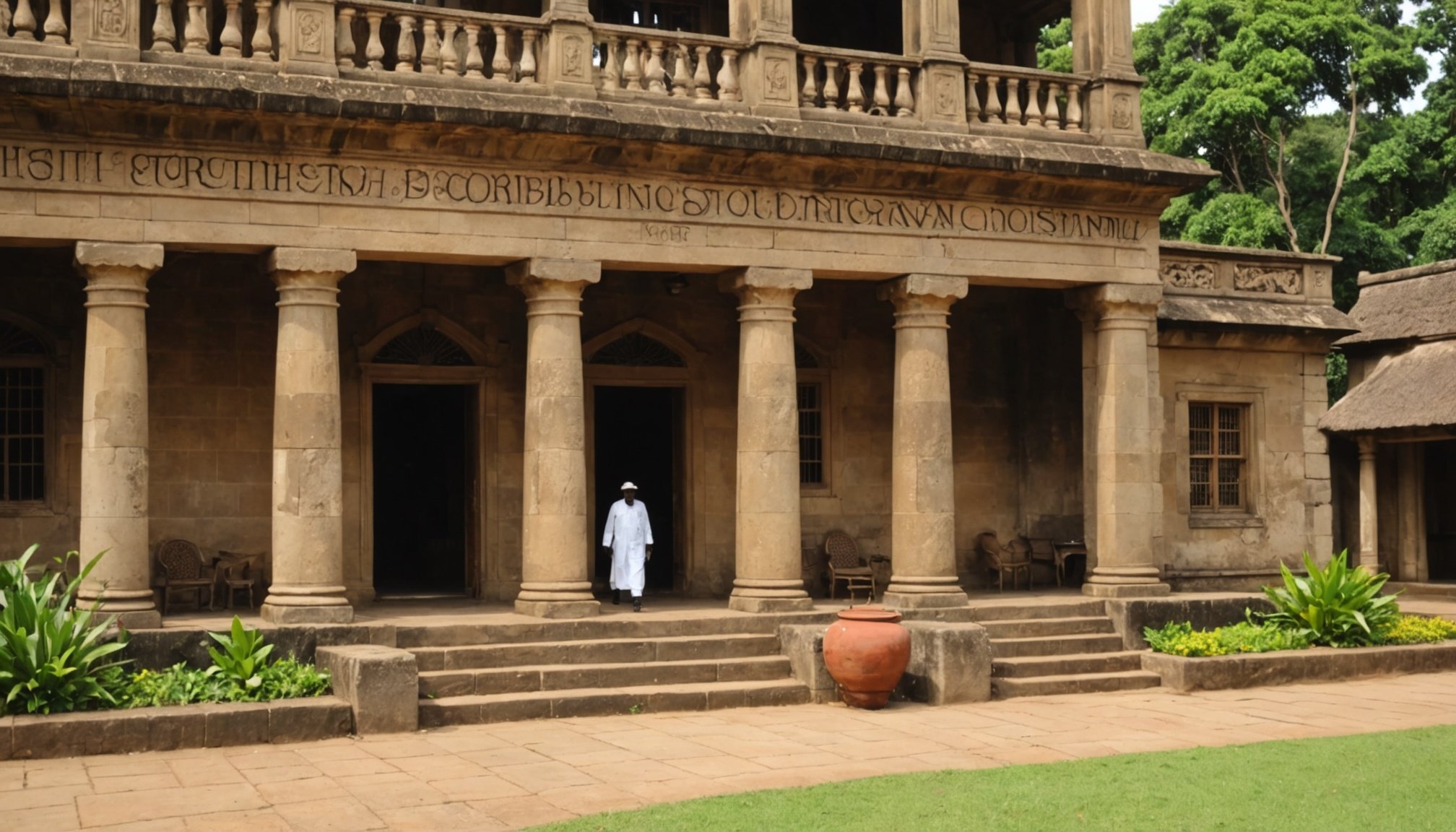Introduction to British Colonialism
The British colonial history is a vast and complex landscape that stretches across the globe. From Africa to Asia, and the Americas to Oceania, the impact of British colonialism is imprinted on every continent. The reach of British colonialism was expansive, with its global reach often described as “the empire on which the sun never sets.” This section aims to provide a concise historical overview of its scope and significance.
Several key themes dominate the study of British colonialism. These include economic exploitation, cultural exchange, and power dynamics between colonisers and local populations. In exploring these themes, one can obtain a clearer understanding of the profound impact of colonialism on the world stage. Additionally, the cultural, social, and economic repercussions in colonised countries offer a landscape rich with lessons.
Also read : Crafting Your Own Adventure: A Complete Guide to Exploring Edinburgh”s Historic Streets on Foot
The legacy of colonialism continues to affect contemporary societies. Issues such as economic inequality, cultural assimilation, and political upheaval are often rooted in colonial histories. By evaluating this past, societies can better understand present-day contexts and work towards more equitable futures. For those seeking a deeper appreciation of current geopolitical climates, this overview offers an entry point into understanding colonial influences.
Significant Colonial Destinations
Embarking on a journey through historical sites offers profound insights into British colonial history. These colonial destinations serve as vibrant reminders of the past, each offering its unique story and significance.
Also to read : Top 5 strategies for securing colosseum tickets in 2025
India: The Victoria Memorial
This majestic structure is emblematic of India’s colonial past. Housing a rich collection of artefacts, it provides an immersive historical overview. The architectural heritage is a blend of British and Indian styles, making it a must-see landmark. Whether it’s the galleries that host colonial-era paintings or the informative displays, the Memorial offers much to educational tourism enthusiasts. For the best experience, consider visiting during the cooler months.
South Africa: Robben Island
A UNESCO World Heritage site, Robben Island is renowned for its cultural impact under apartheid. Tours provide insights into the lives of political prisoners, including Nelson Mandela. Beyond its historical architecture, it reflects enduring colonial legacy themes. To access the island, boats depart regularly from Cape Town, enhancing the cultural education experience.
Jamaica: National Gallery
This gallery in Kingston highlights the colonial legacy and the evolution of Jamaican art. It delves into the nation’s history, offering post-colonial perspectives through its exhibits. As a cultural landmark, it provides both locals and tourists with reflective and inspiring experiences. Check current exhibitions online to plan your visit effectively.
Notable Historical Landmarks
Exploring landmarks of colonialism offers profound insights into an era that shaped nations. These sites are more than architectural marvels; they are poignant reflections of history’s complex narrative.
India: The Victoria Memorial
The Victoria Memorial in Kolkata stands as a testament to India’s vibrant colonial past. Its architectural heritage is a striking blend of British and Mughal influences, crafted from white marble and adorned with elegant domes. Inside, visitors find galleries filled with colonial-era artefacts, paintings, and manuscripts that narrate the nuanced relationship between Britain and India. For an optimal experience, it’s wise to visit during the cooler months when the weather complements the grandeur of this historical gem.
South Africa: Robben Island
Robben Island, located near Cape Town, is a UNESCO World Heritage Site notable for its profound cultural and historical significance. Once a penitentiary for political prisoners, many visitors come to understand the cultural impact of apartheid and colonial rule. Regular boat trips provide convenient access, allowing visitors to engage with enduring themes of resilience and hope woven through its corridors.
Jamaica: National Gallery
Kingston’s National Gallery is a repository of Jamaican art and post-colonial perspectives. Exhibits here explore the evolution of Jamaican culture, heavily influenced by its colonial past. Current exhibitions provide fresh insights, so checking online updates before visiting is advisable.
Educational Experiences at Colonial Sites
Engaging in educational tourism at colonial sites offers visitors a deep dive into historical context and cultural narratives. Many colonial sites provide structured programs that enrich understanding through diverse storytelling and interactive experiences. Visitor centres and museums often serve as hubs for cultural education, housing exhibitions that detail both the impacts and nuances of colonial history.
Among these resources, guided tours and educational workshops stand out. These experiences are tailored to uncover colonial history through artefacts, artworks, and personal stories that shape local perspectives. An excellent example of this is Robben Island in South Africa, where tours guide visitors through the harsh realities and enduring hopes shaped by its history.
For those looking to maximise their learning experiences, it’s beneficial to participate in discussions or seminars organized by the sites. These forums invite historians and local community members to share post-colonial perspectives, offering a richer understanding of the challenges faced by former colonies today. When visiting, allocating time for these in-depth engagements ensures a more rounded appreciation of the effects of colonialism and the cultural dialogue surrounding them. For optimal enrichment, it’s helpful to research and book these programs in advance.
Cultural Insights and Reflections
British colonialism has left an indelible mark on cultural landscapes worldwide, which continues to shape contemporary society. The cultural impact of British rule is evident in the diverse heritage of former colonies, where local traditions meld with introduced customs. This synthesis is often reflected in art, language, and societal norms, highlighting the colonial legacy in today’s global culture.
Post-colonial perspectives offer a rich tapestry of narratives exploring the complex relationship between colonisers and the colonised. These perspectives provide insight into the resilience and creativity of communities as they navigated identity shifts and cultural assimilation. Conversations featuring historians and local voices are vital in unpacking colonial histories; they offer illuminating reflections on colonialism’s ongoing impact, connecting past influences with current cultural dialogues.
In exploring contemporary issues, the legacy of colonialism continues to reverberate through ongoing debates on economic disparity and cultural restitution. Recognising these enduring effects fosters a deeper understanding of cultural identity and memory. Reflective engagement encourages societies to confront these complexities and champion equitable representation and cultural preservation. Through acknowledging colonialism deeply, we gain insights into forging a future that honours these intertwined histories while supporting inclusive cultural growth.
Travel Tips for Exploring Colonial Heritage
Exploring the rich tapestry of colonial heritage requires thoughtful planning and responsible tourism. Whether your journey takes you to historic landmarks of colonialism or lesser-known sites, respect for local customs and a keen understanding of cultural sensitivity are important.
When planning your itinerary, consider integrating multiple colonial sites. This approach offers a holistic view of British colonial history across different regions. Include both major cultural landmarks like the Victoria Memorial in India and underappreciated gems that provide unique insights into local histories. Always check for accessibility options and recommended visiting hours to ensure a comfortable and enriching experience.
Keep in mind the best times to visit. For example, exploring South Africa’s Robben Island during milder months offers a more enjoyable climate, enhancing your engagement with cultural education. Similarly, visiting Jamaica’s National Gallery during off-peak seasons may afford more personal interaction with exhibits.
Responsible tourism involves respecting local traditions and purchasing from community vendors to support economic growth. Educate yourself about the regions you visit to foster meaningful connections. Prepare for historical narratives that might challenge perspectives, and embrace this opportunity to gain a deeper understanding of the sites’ colonial legacies.
Resources for Further Exploration
Delving deeper into British colonial history requires engaging with comprehensive resources that offer both historical documents and modern analyses. These materials are invaluable for anyone looking to understand the colonialism impact from diverse perspectives.
-
Books such as “The British Empire: A History” provide an in-depth historical overview, offering insights into the empire’s global reach and its complex legacies. Works by authors like Niall Ferguson offer critical examinations of colonialism’s economic and cultural effects.
-
Documentaries like “The Empire” series give a visual storytelling approach, helping viewers grasp historical events through detailed narratives and historical reenactments.
-
Websites like the British Library’s online archives feature extensive collections of maps, letters, and official records, providing primary sources for research. These resources are crucial for piecing together the local and global narratives of British colonialism.
For those seeking academic resources, university libraries often offer access to journals that explore the nuanced themes of colonial studies. On-site local resources such as guided tours and workshops at colonial destinations also enhance understanding, providing tangible connections to the past. These engagements enrich one’s exploration of historical contexts, making learning about British colonialism both informative and transformative.










